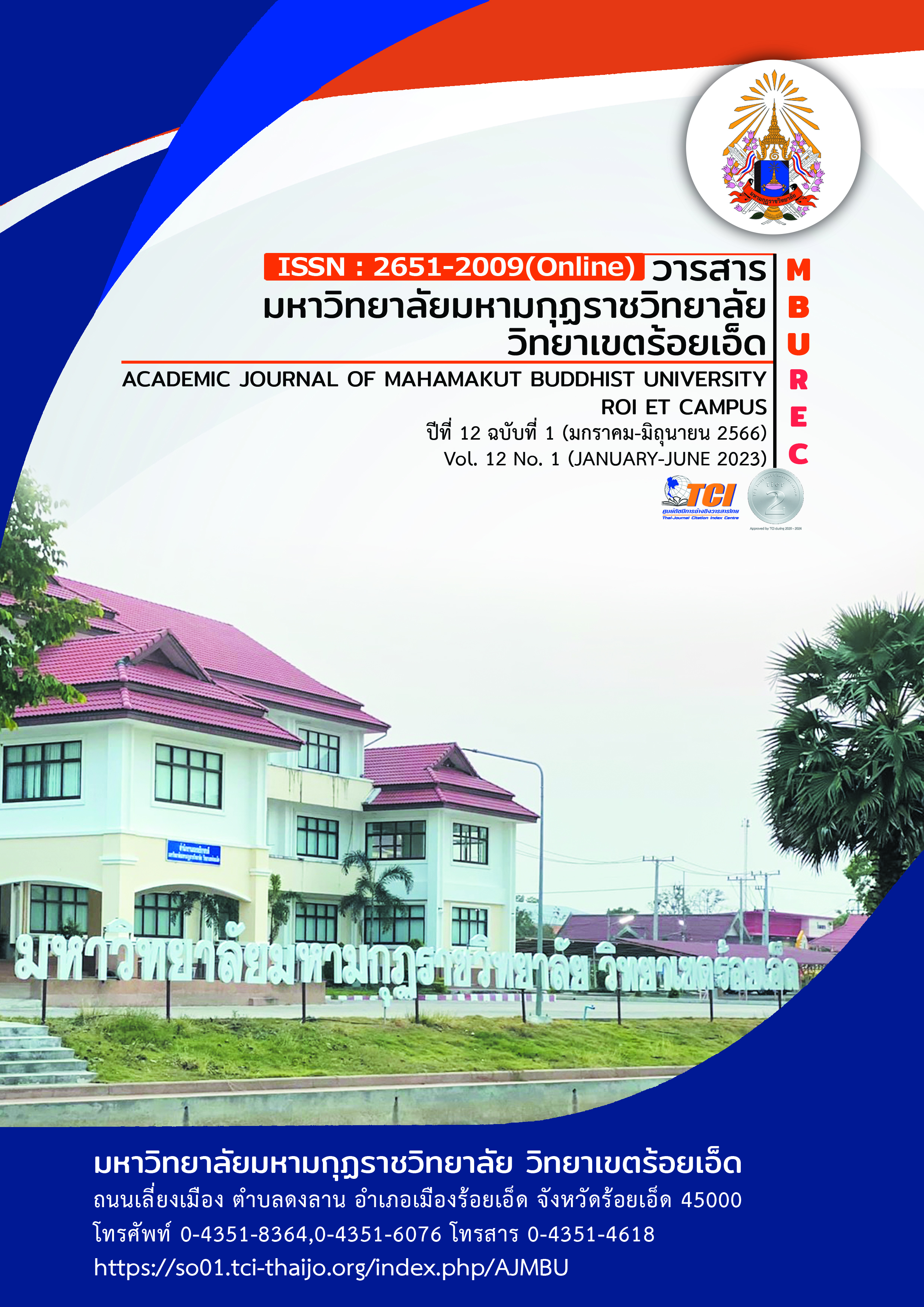A COMPARATIVE STUDY OF IDEAL SOCIETY ACCORDING TO THERAVADA BUDDHIST PHILOSOPHY AND WESTERN PHILOSOPHY
Main Article Content
Abstract
This research article has objectives 1) to study an ideal society according to Theravada Buddhist philosophy, 2) to study an ideal society according to Western philosophy and 3) to comparative study an ideal society according to Theravada Buddhist Philosophy and Western Philosophy. This research is a qualitative research with the study of documents and research with to analyze the ideal society of Buddhadasa Bhikkhu and Plato's ideal society to find a summary and presents research reports.
The results of research found that: Ideal society according to Theravada Buddhist Philosophy, it started with the Buddha wanting to abolish the old social system and create a new social system in India during the Buddhist era. By the way, it clearly rejected the caste system in Indian society that created the social inequality of that time. It is a human society characterized by equality and equality in life.Ideal society according to Western philosophy, it hold Plato's political philosophy formed ideas from the political turbulence of Athens and family environment in high society. Plato had the view that Uttamarath(the Republic) is the ultimate ideal society with a political goal of justice. The aristocratic regime which was the regime that was closest to the Uttamarat, so it was important to the person who would lead the state.Ideal society according to Theravada Buddhist Philosophy and Western Philosophy. When there is comparison, it saw that there are the same issues namely, a good governance to be a perfect ruler in which a good political society must arise from a virtuous leader and the difference is political philosophy that is not based on reality. But it uses a rational argument to approach an ideological society.
Article Details

This work is licensed under a Creative Commons Attribution-NonCommercial-NoDerivatives 4.0 International License.
References
เดือน คำดี. (2526). ปรัชญาตะวันตกสมัยใหม่. กรุงเทพมหานคร : สำนักพิมพ์โอเดียนสโตร์.
ทวีวัฒน์ ปุณฑริกวิวัฒน์. (2539). พุทธทาสภิกขุกับทฤษฎีธัมมิกสังคมนิยม. วารสารพุทธศาสน์ศึกษา. 3(2). 29-52.
ปรีชา ช้างขวัญยืน. (2529). ทรรศนะทางการเมืองของพระพุทธศาสนา. กรุงเทพมหานคร : จุฬาลงกรณ์มหาวิทยาลัย.
ปรีชา ช้างขวัญยืน. (2534). ความคิดทางการเมืองในพระไตรปิฎก. กรุงเทพมหานคร : จุฬาลงกรณ์มหาวิทยาลัย.
พระนิติกร จิตฺตคุตฺโต (วิชุมา). (2556). การศึกษาเปรียบเทียบปรัชญาการเมืองของเพลโตกับแนวคิดทางการเมืองของพุทธทาสภิกขุ. วิทยานิพนธ์พุทธศาสตรมหาบัณฑิต สาขาวิชาปรัชญา. บัณฑิตวิทยาลัย : มหาวิทยาลัยมหาจุฬาลงกรณราชวิทยาลัย.
พุทธทาสภิกขุ. (2548). ธัมมิกสังคมนิยม. กรุงเทพมหานคร : สำนักพิมพ์สุขภาพใจ.
ฟื้น ดอกบัว. (2544). ปวงปรัชญากรีก. กรุงเทพมหานคร : สำนักพิมพ์ศยาม.
มหาจุฬาลงกรณราชวิทยาลัย. (2539). พระไตรปิฎกภาษาไทยฉบับมหาจุฬาลงกรณราชวิทยาลัย. กรุงเทพมหานคร : โรงพิมพ์มหาจุฬาลงกรณราชวิทยาลัย.
มหาวิทยาลัยสุโขทัยธรรมาธิราช. (2533). ปรัชญาการเมือง. กรุงเทพมหานคร : โรงพิมพ์มหาวิทยาลัยสุโขทัยธรรมาธิราช.
สมภาร พรมทา. (2539). ปรัชญาสังคมและการเมือง. กรุงเทพมหานคร : สำนักพิมพ์จุฬาลงกรณ์มหาวิทยาลัย.
สุมาลัย กาญจนะ. (2558). แนวคิดเรื่องสังคมนิยมตามแนวพุทธปรัชญาเถรวาท. วิทยานิพนธ์พุทธศาสตรดุษฏีบัณฑิต สาขาวิชาปรัชญา. บัณฑิตวิทยาลัย : มหาวิทยาลัยมหาจุฬาลงกรณราชวิทยาลัย.


